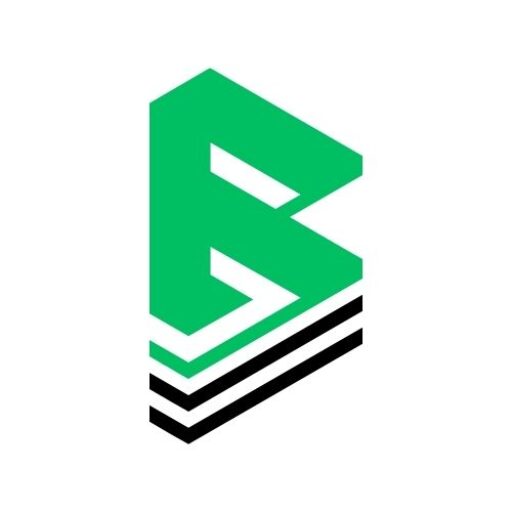SSDI February Payment 2024 : The Federal Government provides various benefits to the citizens after gathering taxes from the citizens. Now, one of the major programs among these is SSDI which is also known as Social Security Disability Insurance under which disabled citizens in a country get various benefits from the nation on a monthly basis.
If you are also physically challenged or experiencing any disability, then you should claim Social Security Disability Benefits 2024 from the Government which will help you in living day to day life.
Now, all those who are already registered under this program should check SSDI February Payment 2024 as per which monthly pension or benefits are transmitted to the beneficiary. If you have not registered until this date, then you should check SSDI Eligibility 2024 and then proceed to claim the SSDI February Payment 2024 benefits. Here, we have mentioned directions to Claim SSDI February Payment 2024 Benefits which will be helpful for you to get the benefits.
SSDI February Payment 2024
The federal SSDI program offers financial support to people who are unable to work because of a serious condition. A qualifying medical condition that prevents you from engaging in significant gainful activity (SGA) for at least 12 months or that is anticipated to cause your death must be present for you to be eligible for SSDI benefits. You also need to have contributed to the Social Security system through payroll taxes and have a long enough work history.
If you are also registered under this program, then you should check SSDI February Payment 2024 as per which you will be receiving the advantages in your Account. We have mentioned the SSDI February Payment 2024 Schedule in this article for your reference.
SSDI February Payment 2024 : Highlights
| Program | SSDI (Social Security Disability Insurance) |
| Authority | Social Security Administration |
| Government | Federal Government |
| Country | United States |
| Beneficiaries | Disabled Citizens in US |
| Total Beneficiaries | 9.7 Million |
| SSDI February Payment 2024 | 14 & 28 February 2024 |
| Website | https://www.ssa.gov/ |
SSDI February Payment 2024
For Long-Term Beneficiaries (Before May 1997)
- Its payment date is 3rd Feb. Individuals who have been on the SSDI program since before May 1997. They receive SSDI February Payment 2024 on the 3rd of each month, irrespective of their birth date.
Birth Date Between the 1st and 10th
- Beneficiaries whose birthdays are between the 1st and 10th of any month will receive their SSDI February Payment 2024 on February 14th (the Secondly Wednesday of the month).
Birth Date Between the 11th and 20th
- Individuals whose birthdays are between the 11th and 20th of the month will receive their SSDI February Payment 2024 on February 21st (The third Wednesday of the month).
Birth Date Between the 21st and 31st
- Individuals born between the 21st and the end of the month will receive their SSDI February Payment 2024 on February 28th (The Fourth Wednesday of the month).
How to Claim SSDI February Payment 2024 ?
To Claim SSDI Payment Benefits 2024, you can follow the instructions given below :-
- First of all, you must visit SSA Official Website @ssa.gov.
- Search for SSDI and then click on File App.
- Fill in the Application along with medical records and then upload the supporting documents.
- Now, authorities will approve your application and you will begin receiving the benefits in the coming months.
- Typically, it takes 15 Days for the authorities to approve your application.
SSDI Benefits Interview
The SSDI benefits interview is a crucial part of the application process. This interview serves several essential purposes, including:
Assessing Eligibility: The interviewer will review your application to determine whether you meet the eligibility requirements for SSDI benefits. This includes evaluating your work history, disability, and income status.
Gathering Medical Information: The interview will involve detailed questions about your medical condition, treatment, and how it affects your daily life. Providing accurate and comprehensive information about your medical condition is crucial.
- Tax Return Status 2023
- Chandra Grahan 2023
- [4th EIPS] Stimulus Check 2023
- How to Apply for Student Loan Forgiveness
- SRD R350 Payment SASSA Status
- Minnesota Property Tax Refund Programs 2023
- Malaysia Pension Payment Dates
- IRM Energy IPO 2023
- Protean e-Gov Technologies IPO
- I Bonds vs. Treasury Bills
Verifying Work History: The interviewer will ask about your work history, including your job titles, responsibilities, and the dates of employment. They will also assess your ability to work in your previous job or any other job given your disability.
Financial Information: Your financial situation, including your income, assets, and expenses, will be discussed during the interview. This information is vital for determining your financial eligibility for SSDI benefits.
Explaining the Process: The interviewer will also explain the SSDI application process, including the review and decision-making steps that will follow the interview.
Collecting Supporting Documents: You may be asked to provide supporting documents, such as medical records, employment records, and financial documents, to substantiate the information provided during the interview.
Social Security Disability Important Details to Know Before Your Interview
To prepare for your SSDI benefits interview effectively, here are some important details you must be aware of :-
Interview Location and Format: You should know when and where your interview will take place. Some interviews are conducted in-person at the local Social Security office, while others may be conducted over the phone or through video conferencing.
Arrival Time: If your interview is in-person, arrive at the designated Social Security office a little early to allow time for parking and security procedures.
Documentation: Gather all relevant documents that you will need for the interview. This includes your Social Security card, identification, medical records, employment records, and any other requested documents.
Medical History and Current Condition: Be prepared to discuss your medical history, current condition, symptoms, treatments, and any medications you are taking. Be honest and thorough in your descriptions.
Work History: Provide detailed information about your work history, including job titles, responsibilities, and the physical and mental demands of your previous jobs. Explain how your disability affects your ability to work.
Financial Information: Be ready to discuss your financial situation, including your income, assets, and expenses. You may need to provide financial records as proof.
Medical Providers: Know the names and contact information of your medical providers, including doctors, specialists, and hospitals. This information is crucial for the Social Security Administration (SSA) to obtain your medical records.
Supporting Evidence: If you have any additional medical records, letters from healthcare providers, or testimonies from friends, family, or coworkers, bring them to the interview to support your case.
Legal Representation: Consider having a legal representative, such as an attorney or an advocate, present during the interview. They can provide guidance, ensure your rights are protected, and help you navigate the complexities of the SSDI application process.
Communication Skills: Be clear and concise in your responses. Focus on the impact of your disability on your daily life, work, and activities. It’s crucial to convey how your condition makes it impossible for you to engage in substantial gainful activity.
Follow-Up and Next Steps: Understand what will happen after the interview. The SSA will continue to gather medical evidence and may request additional information. It’s important to follow up and provide any requested documents promptly.
Timeliness: Ensure that you attend the interview on the scheduled date and time. Missing the interview can result in delays or denials of your SSDI application.
Patience and Persistence: The SSDI application process can be lengthy, and it may involve appeals if your initial application is denied.
Social Security Disability (SSDI) benefits
The SSDI benefits interview is a pivotal step in the application process. Being well-prepared and informed about the interview’s purpose, the information you need to provide, and the documentation required can significantly improve your chances of a successful application.
By understanding the important details and ensuring that you present your case effectively during the interview, you can navigate the SSDI application process more confidently and increase your likelihood of receiving the financial support you need due to your disability.
SSDI Eligibility 2024
- Firstly, you must be suffering from the Temporary or Permanent Disability.
- Your Disability does not permit you to get employed then you must apply for SSDI.
- Additionally, you can follow the instructions below to Claim the SSDI Payment Benefits 2024.
- You can also get Ticket to Work after you are fit to get employed and this ticket will allow you to do the Best Job for you.
SSDI February Payment 2024 Amount
In order to determine the Social Security Payment Amounts for 2024, 3 factors are considered : work history, lifetime earnings, and age of claim.
This, without difficulty, is the managed thing that has a huge influence on retirement benefits. The table shows the maximum Social Security payments that retired employees of various a long time need to potentially acquire in 2024.
| Claiming Age | Maximum SSB in 2024 |
| 62 | $2,710 |
| 65 | $3,426 |
| 66 | $3,652 |
| 67 | $3,911 |
| 70 | $4,873 |
SSDI Payment 2024 Schedule
- If your birthday falls before the 10th of the current month then you will receive the Payment on the 2nd Wednesday of each month.
- If your birthday falls between 11th and 20th then you will receive the payment on the 3rd Wednesday of every monthly.
- If your birthday falls between 21st to 31st of any month then you will get RSSI payment in your Account on 4th Wednesday.
| Month | Birthday Before 10th | Birthday Before 20th | Birthday Before 31st |
| January | 2nd Wednesday | 3rd Wednesday | 4th Wednesday |
| February | 2nd Wednesday | 3rd Wednesday | 4th Wednesday |
| March | 2nd Wednesday | 3rd Wednesday | 4th Wednesday |
| April | 2nd Wednesday | 3rd Wednesday | 4th Wednesday |
| May | 2nd Wednesday | 3rd Wednesday | 4th Wednesday |
| June | 2nd Wednesday | 3rd Wednesday | 4th Wednesday |
| July | 2nd Wednesday | 3rd Wednesday | 4th Wednesday |
| August | 2nd Wednesday | 3rd Wednesday | 4th Wednesday |
| September | 2nd Wednesday | 3rd Wednesday | 4th Wednesday |
| October | 2nd Wednesday | 3rd Wednesday | 4th Wednesday |
| November | 2nd Wednesday | 3rd Wednesday | 4th Wednesday |
| December | 2nd Wednesday | 3rd Wednesday | 4th Wednesday |
FAQ’s: SSDI February Payment 2024
When are the SSDI February Payment Dates 2024 ?
SSDI Payment Dates for February, 2024 are from 14th, 21st and 28th February 2024.
What is the SSDI Payment Amount 2024 ?
SSDI Amount varies from $250 to $1000 depending upon your circumstances.
How to claim SSDI February Payment benefits 2024 ?
Applicants can Claim SSDI February Payment Benefits from the official website @https://www.ssa.gov/.

